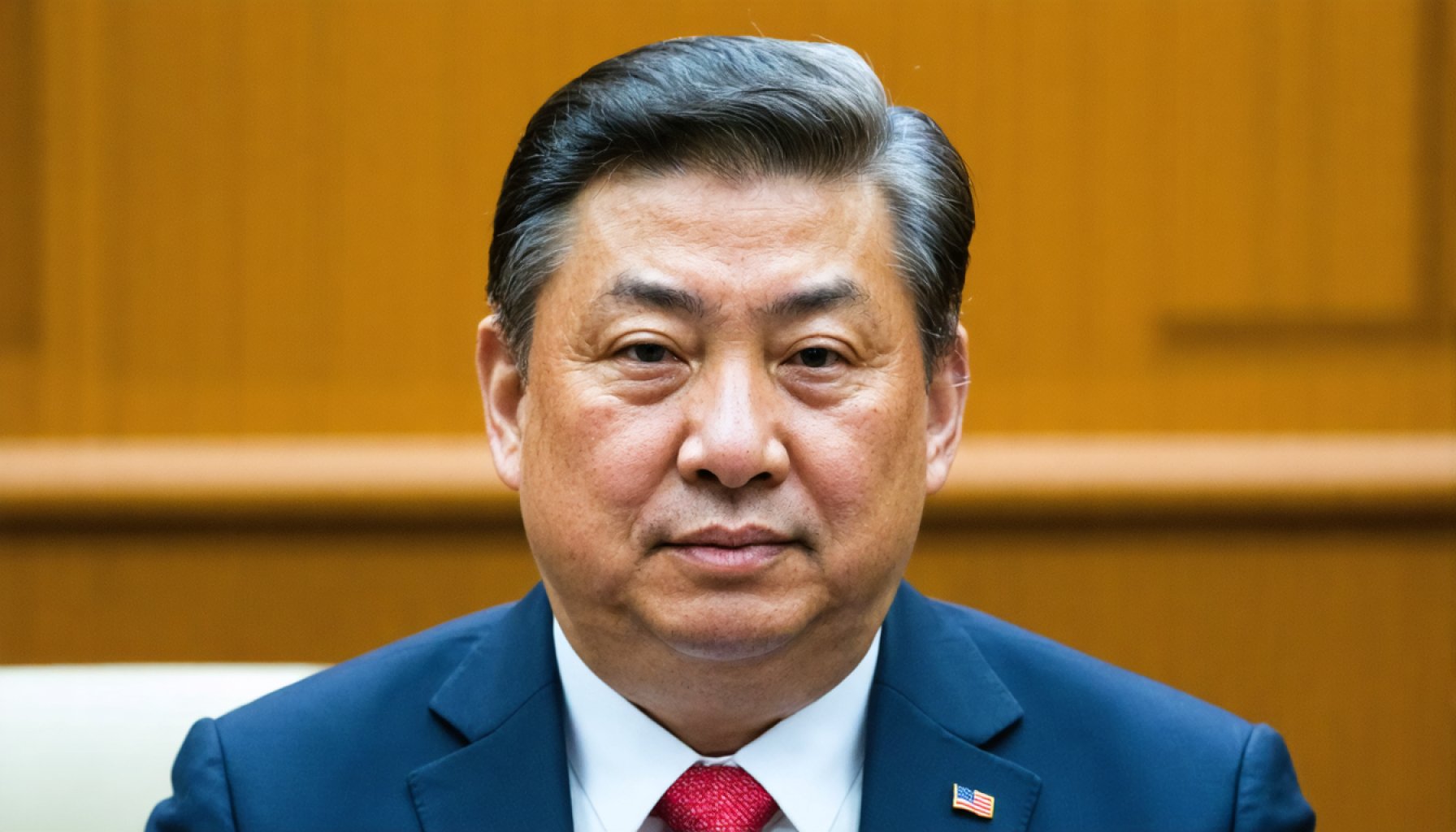- Jiang Chaoliang, a key figure in China’s National People’s Congress, is under investigation for severe disciplinary violations.
- Jiang held influential roles, including Governor of Jilin and Party Secretary of Hubei, making significant impacts in provincial and national politics.
- The Central Commission for Discipline Inspection is leading the investigation, highlighting China’s focus on ethical governance and anti-corruption measures.
- This case serves as a reminder that no political figure is immune to scrutiny, emphasizing accountability within China’s political system.
- The investigation underscores the ongoing importance of integrity in governance, with implications reaching beyond China’s borders.
A wave of intrigue has washed over Chinese political circles as news emerges of Jiang Chaoliang, a prominent figure in China’s National People’s Congress, becoming embroiled in a major investigation. The sky is darkening for Jiang, who stands accused of severe disciplinary violations. As the deputy director of the Agriculture and Rural Affairs Committee, he has been thrust into the spotlight—a place his career had seldom lacked.
Born in August of 1957, Jiang’s career has been a tapestry of high-profile roles across provincial and national arenas. He has left his imprint as the Governor of Jilin Province and later, as the Party Secretary of Hubei Province. His journey through the echelons of power has been nothing short of remarkable, marked by strategic insights and significant regional developments under his watch.
Yet, amid the corridors of authority, whispers of misconduct have grown louder, culminating in the announcement of a disciplinary review and supervisory investigation by the Central Commission for Discipline Inspection. This formidable body, known for its unwavering stance on ethical governance, is delving deeply into the intricacies of Jiang’s actions.
As this investigation unfolds, it reminds the political elite and citizens alike of the pervasive vigilance against corruption. The vital message rings clear: no individual, regardless of stature, remains beyond scrutiny. This case encapsulates the relentless pursuit of integrity within China’s complex political landscape. The outcome not only holds implications for Jiang but also serves as a potent symbol of accountability in governance—a principle that resonates far beyond China’s borders.
Unveiling Political Scandals: What the Jiang Chaoliang Investigation Means for China’s Future
How-To Steps & Life Hacks in Investigating Corruption
Anti-corruption initiatives require detailed processes, especially in high-profile cases like that of Jiang Chaoliang. Here’s a simplified breakdown of how such investigations typically unfold:
1. Initial Complaint: Suspicion arises through external complaints or internal audits.
2. Preliminary Inquiry: Basic checks are conducted to assess the validity of the allegations.
3. Formal Investigation: If initial checks warrant, a formal investigation is launched.
4. Gathering Evidence: Collect pertinent documents, financial records, and witness statements.
5. Interrogation: The subject of the investigation is questioned alongside key witnesses.
6. Report Findings: Formulate a comprehensive report detailing the findings.
7. Decision and Sanction: Impose penalties or exonerate based on findings.
Real-World Use Cases of Anti-Corruption Movements
China’s approach to corruption has shaped various sectors, influencing governance, international business, and economic policy. An exemplar is the widespread anti-corruption campaign initiated under President Xi Jinping. This has led to numerous high-profile prosecutions, resulting in increased investor confidence and streamlined government functions.
Market Forecasts & Industry Trends
International firms have adapted to China’s stringent anti-corruption regulations by implementing robust compliance programs. This trend is expected to continue, with companies investing more in legal and compliance teams to navigate the evolving Chinese regulatory landscape.
Reviews & Comparisons
China’s anti-corruption measures are often compared with similar initiatives globally. While some regard China’s mechanisms as more rigorous, others point to a lack of transparency when compared to Western standards. Nonetheless, China remains a pivotal player in shaping global anti-corruption norms.
Controversies & Limitations
Critics sometimes underline the opaque nature of China’s disciplinary processes, arguing this lack of transparency can lead to politically biased outcomes. The balance between actual corruption fighting and political maneuvering remains a contentious subject.
Features, Specs & Pricing of Anti-Corruption Campaigns
While not a traditional product, China’s anti-corruption campaigns involve substantial financial resources. Estimates suggest these campaigns can cost billions annually, with significant portions allocated to personnel, technology, and legal resources.
Security & Sustainability
These initiatives enhance national security by building more robust, transparent institutions, though some argue the sustainability of such campaigns requires even-handedness and systemic changes in governance structures.
Insights & Predictions
Expect a sustained focus on high-profile investigations as China reinforces its image globally. The volume of investigations might increase, leveraging big data analytics for preemptive identification of potential corruption.
Tutorials & Compatibility in Integrity Training
Corporates looking to harmonize with China’s expectations typically offer regular training on ethical practices, compliance, and transparency. Such measures are fundamental in maintaining cross-border business relations.
Pros & Cons Overview
Pros:
– Enhanced national and international trust.
– Improved governance and reduced corruption.
– Assurance of integrity in public offices.
Cons:
– Potential for misuse as political tools.
– Lack of transparency in processes.
– Impact on officials’ morale leading to bureaucratic stagnation.
Actionable Recommendations
– For Businesses: Continuously monitor China’s regulatory landscape and enhance compliance practices.
– For Policy Makers: Promote transparency in proceedings to balance power and public trust.
– For Individuals: Stay informed about governance reforms and participate in public oversight mechanisms.
For more on China’s regulatory landscape, please visit the Chinese Government’s Official Portal for the latest updates.
—
Consider these insights and actionable strategies to grasp how China’s anti-corruption measures might affect you or your organization. Stay vigilant, stay informed.
